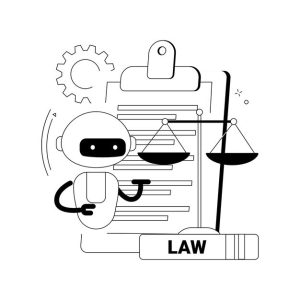The rapid legal field requires law firms to adopt progressive technological solutions. Artificial Intelligence (AI) along with automation emerged as transformative technological innovations that optimize operational efficiency and boost legal documentation precision and effectiveness.
Documents in law firms undergo a transformation because of AI and automation technologies which this blog investigates alongside their current advantages and future predictions for these technological applications within legal settings.
The Significance of Document Management in Law Firms
The proper handling of large legal document collections is essential for law firms which regularly manage contracts as well as case-related documentation and court submissions and client written materials. The proper order of document organization together with document retrieval systems provides firms with enhanced productivity and protects client confidentiality besides maintaining legal compliance.
The standard practice of managing legal documents used to demand physical work for classification alongside document analysis and physical storage procedures. Unmodern approaches to document management both elevate the chance of mistakes and use up extensive amounts of time. The implementation of AI-powered document management systems (DMS) enables law firms to automate processes that both decrease employee workload and ensure better accuracy in their work.
The Role of AI in Legal Document Management
Legal document management undergoes radical transformation through AI-based solutions which law firms use to process their papers. AI Legal document tasks operating with AI automation allow both document tagging along with intelligent search functions which boost document workflows.
1. Automated Document Classification and Tagging
Machine learning systems use document content to create automatic sorting systems that eliminate human-based sorting needs. Proper document labeling techniques together with quick retrieval capability are provided by this system. Law firm document management systems that use artificial intelligence automation decrease organizational work time and boost operational performance.
2. Enhanced Search and Retrieval
Keywords used in standard search technologies tend to generate a high number of undesired search results. AI search technologies process user inquiries through natural language processing to determine both the meaning and purpose of questions which leads to precise search outcomes. Lawyers access required documents more efficiently thus they improve both productivity and reduce administrative time.
3. AI-Driven Document Review and Analysis
AI technology demonstrates power to inspect extensive collections of legal documents which lets it extract vital information while spotting unnoticed contradictions. The system produces substantial advantages for legal operations through its ability to conduct thorough contract checks, compliance reviews and due diligence verification which results in better accuracy and faster performance.
4. Predictive Coding and E-Discovery
Law professionals use predictive coding within AI technology as a principal tool to collect relevant case files from extensive electronic databases for e-discovery purposes. The use of previous decision data helps AI systems to boost document searching precision thus speeding up legal case document retrieval operations while decreasing research expenses.
The Impact of Automation on Legal Document Management
AI improves document intelligence while automation uses procedures to eliminate repetitive steps and implement standardized practices.
1. Workflow Automation
Automation tools implement and manage document workflows that guide the structured evaluation and authorization sequence. The system prevents delays from forming while making sure all steps finish within scheduled timelines to enhance organizationwide productivity.
2. Template Management
Standardized documents form a key part of the operations at law firms. The automated system which manages templates helps users create custom documentation quickly while maintaining consistent legal documentation by allowing reuse of documents.
3. Version Control
When manually tracking document versions errors become likely to occur. The system records all modifications and provides instant access to the most updated version which protects employees from working with obsolete materials.
4. Automated Compliance Checks
As a requirement law firms need to follow both client confidentiality standards and data protection rules. The constant document compliance monitoring performed by automated systems protects firms from non-compliance penalties.
Key Benefits of AI and Automation in Law Firm Document Management
The implementation of AI alongside automation systems within law firm document management strategies produces many beneficial results:
- Increased Efficiency: Document automation enables legal professionals to enhance their productivity because they no longer need to perform manual tasks which allows them to dedicate efforts towards strategic work activities as opposed to administrative burdens.
- Improved Accuracy: The technology delivers superior accuracy during document sorting and information retrieval tasks which results in enhanced legal results.
- Enhanced Collaboration: Automated workflows and version control systems allow teams to collaborate better since staff members gain access to documents in real-time.
- Cost Savings: The optimization of legal document management allows law firms to reduce both time-related and labor expenses.
- Better Compliance and Security: Security measures boost through automated compliance features which guarantee both security and adherence to regulatory standards for client-sensitive data.
The Future of AI and Automation in Law Firm Document Management
AI and automation technologies will expand their effects on legal document management during future developments. Future advancements may include:
- Intelligent software systems evaluate complex legal documents through their analysis of complicated legal language.
- Blockchain integration for secure document verification and authentication.
- Enhanced AI capabilities for real-time document insights and decision-making.
Conclusion
Modern document management at law firms benefits from artificial intelligence and automation which delivers advanced efficiency and security as well as absolute accuracy. Law firms benefit from AI driven documentation management systems which enhance operational efficiency while lowering administrative costs and improving their services to clients.
The implementation of modern technologies has become mandatory for maintaining competitive advantage in the developing legal services industry. Firms that implement AI-based document management solutions now will succeed better at handling legal requirements of the future.










